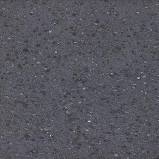Corian countertops continue to maintain their share of space in the kitchen countertops market even as granite and quartz countertops have gained in popularity.
We may love natural stone and granite countertops, (granite is in our name after all!) but our showroom contains Corian designs and we install them in many kitchens and remodels.
There are many people interested in Corian countertops because of its practicality, reasonable pricing, and variety of colors, but often are not very familiar with it and have questions.
In this post, we’ll answer the most frequently asked questions about Corian that we hear.
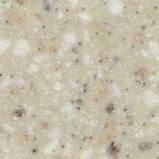 What is Corian?
What is Corian?
Corian is the brand name of the man-made solid surface material created by DuPont in 1967. There are other brands which have arisen in recent years but Corian is the original. It was designed to have the look of natural stone, but unlike granite or other stones, be entirely non-porous.
What is Corian made of?
Corian is a man-made product composed of 33 percent binding resins and 66 percent minerals. It is composed of acrylic polymer and alumina trihydrate (ATH), a material derived from bauxite ore.
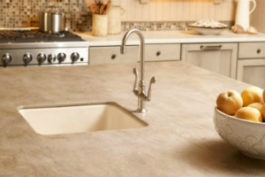
Are Corian countertops durable?
Corian is solid all the way through, making it extremely durable and a great choice for a countertop that will see heavy use. It is stain resistant, non-porous, and heat resistant.
Is Corian cheaper than granite?
Corian is generally considered a mid-range priced countertop material. It is usually more affordably priced than granite, marble or quartz.

Is Corian cheaper than quartz?
Corian is a reasonably priced countertop material that will usually be more affordable than quartz, granite, or marble.
How much does Corian cost?
The price range of Corian materials can vary depending on the color, texture or style you choose. Average prices range between $40 and $65 per square foot.
Is Corian scratch resistant?
Corian and solid surface materials are relatively soft compared to natural stone. When you have Corian countertops, you should be careful to use cutting boards in the kitchen when preparing food. However, it is not difficult to repair using an orbital sander and fine grain sandpaper to sand down scratches.
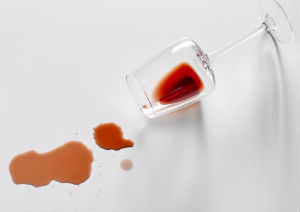
Is Corian stain resistant?
Corian is resistant to stains. It is essentially nonporous, meaning liquids cannot penetrate its surface, and also considered highly hygienic surface and easy to keep clean.
Can Corian countertops withstand heat?
Corian is heat resistant and remains undamaged in temperatures up to 212ºF. However, as with all countertop materials, it is important to minimize direct heat exposure to protect your surface. Using heat pads is recommended.
Can Corian be sealed?
Unlike natural stone countertops like granite, Corian never requires sealing.
Can you repair Corian countertops?
Corian is a resilient material that allows for small scratches and chips to be sanded out of your countertop. Usually, this can be done DIY by the homeowner.
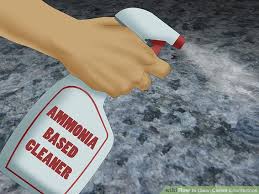 How do you clean Corian countertops?
How do you clean Corian countertops?
According to the manufacturer DuPont, for most Corian residues, all you need to clean your countertops is warm soapy water, ammonia-based household cleaner, or a dedicated countertop cleaner. Do avoid window cleaners, however, as they can leave a waxy build-up that dulls the surface.
Shopping for countertops in St Louis area?

Call us today at 314.533.3366
Graniterra is the leading supplier of Corian countertops, granite and natural stone in the St Louis area. With over 30 years in the stone business, we have the experience to deliver a perfect project, from design to installation. Request a quote



